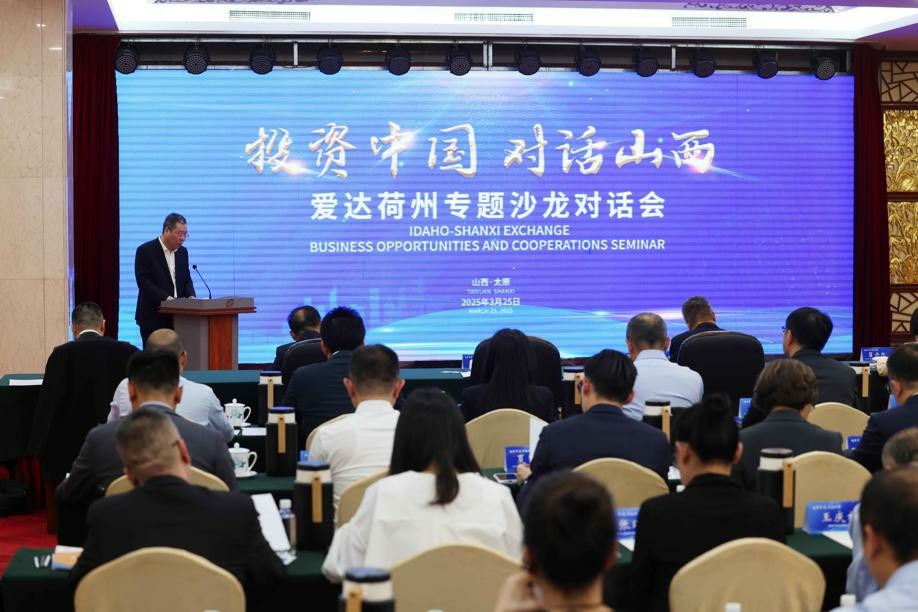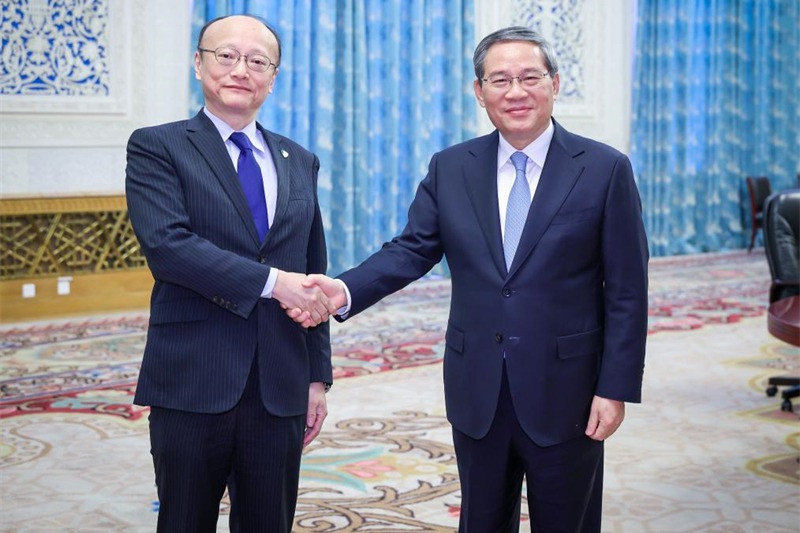Progress made in fight against formalism
Reduction in excessive adherence to prescribed forms increasing efficiency

Targeted measures have been taken to spare grassroots officials from having to participate in unnecessary meetings or write tedious reports, enabling them to focus on practical work after the central leadership prioritized tackling formalism last year, experts said.
From January to November, nearly 92,000 cases of formalism were investigated nationwide, a significant increase from the previous year's 46,000 cases, according to data from the Central Commission for Discipline Inspection and the National Commission of Supervision.
During this period, approximately 135,000 officials received disciplinary or administrative punishments for their involvement in the problem, nearly double the 70,000 individuals penalized in 2023, the watchdogs' data showed.
In August, China issued its first intra-Party regulations aimed at relieving primary-level officials from unnecessary workloads by addressing redundant formalities and improving governance amid persistent red tape.
The rules address a wide range of issues, including reducing excessive paperwork, meetings and inspections that hinder local officials' ability to effectively perform their duties. They also regulate mobile applications developed for public governance.
Song Wei, director of the Clean Governance Research Center at the University of Science and Technology in Beijing, said the central leadership has implemented innovative and systematic measures to crack down on formalism. These efforts aim to reduce the burden on grassroots officials and encourage them to take greater responsibility in addressing the practical problems of people.
He emphasized the importance of persistently monitoring and addressing emerging manifestations such as "vanity projects" and "formalism at the fingertips" to create a strong deterrent effect.
In a case highlighted by the CCDI last year, the city of Qiqihar in Heilongjiang province set a target for "likes" during an online city-ranking activity where netizens voted for their favorite cities.
The city issued notices requiring counties and units to regularly report the "likes" they received and explicitly mandated that the participation rate in each district should not be less than 10 percent of the total population.
Some counties imposed a daily quota of 500 "likes" per community. Schools and hospitals required teachers, students, parents, doctors and nurses to participate, with teachers uploading photos to prove their classes had submitted their "likes".
This practice of assigning such box-ticking tasks sparked discontent among grassroots workers and the public, the CCDI said, revealing issues in some areas where tasks are pushed through administrative orders without regard for their feasibility.
Last year, government departments across several regions in China shut down official social media accounts and mobile apps due to issues such as redundancy and poor content and management.
Lyu Dewen, a sociology professor at Wuhan University in Hubei province, noted that when the government began promoting digital development, each level of government created apps for official work. However, many of these apps were unnecessary or not user-friendly.
To ensure high usage rates, some departments introduced ranking assessments, which often evolved into new forms of formalism, he said.
"The systems of some apps require a photo to be uploaded at a certain work stage before the next step can proceed, forcing grassroots officials to leave traces in the apps," he added.
In his research, Lyu found that while certain government apps for filing reports and submitting data have indeed brought convenience, many require overlapping information, significantly increasing the workload for grassroots cadres.
Grassroots officials are expected to address the public's issues face-to-face, Lyu said. However, unnecessary systems and apps often constrain them, as they must first report within the system.
To combat formalism, Lyu suggested it is inadvisable to rush digitalization at the grassroots level at present.
- Drills aim to deter 'Taiwan independence' separatists
- Former national political adviser pleads guilty to bribe-taking
- China expects relatively mild spring and summer epidemic season
- Chinese team develops breakthrough vaccine molecule
- World's largest hybrid TBM debuts in Changsha
- China's High Energy Photon Source enters final construction phase





































